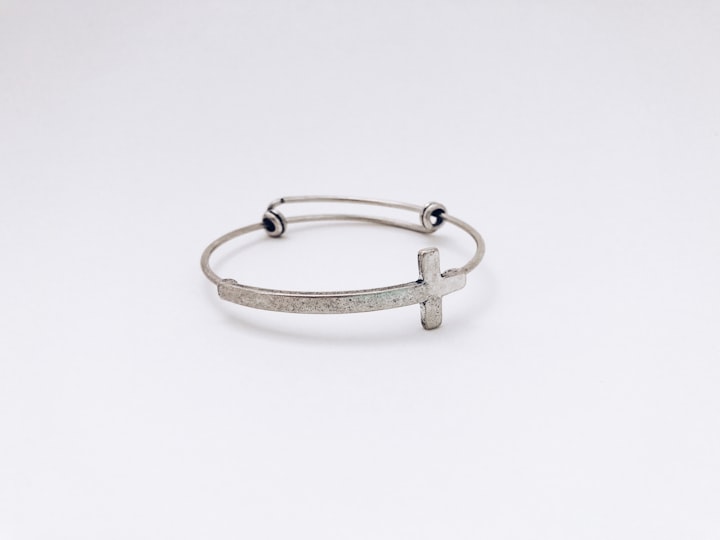Why copper is good for health
Feelings are like chemicals, the more you analyse them the worse they SMELT.

Why copper is good for health ?
Copper is an essential nutrient for the body. Together with iron, it enables the body to form red blood cells. It helps maintain healthy bones, blood vessels, nerves, and immune function, and it contributes to iron absorption. Sufficient copper in the diet may help prevent cardiovascular disease and osteoporosis, too.
What are the benefits of having copper?
Copper is a mineral that is found throughout the body. It helps your body make red blood cells and keeps nerve cells and your immune system healthy. It also helps form collagen, a key part of bones and connective tissue. Copper may also act as an antioxidant, reducing free radicals that can damage cells and DNA.
You may think of copper as something to do with wiring and electronics, but it's also an important mineral that you take into your body when you eat some types of seafood, nuts, veggies, fruit, and other foods. You need it for growth and your overall health.
Copper plays a part in many of your body's organs and systems. It helps you:
1. Make red blood cells
2. Keep nerve cells healthy
3. Support your immune system
4. Form collagen, a protein that helps make up your bones and tissues
6. Absorb iron into your body
7. Turn sugar into energy
Because copper has a role in these important tasks, it can help keep certain conditions at bay, such as:
8. Anemia (low red blood cell count)
9. Osteoporosis (bone loss, most often found in women)
When You Don't Get Enough
Your body doesn't need much copper, but when you're low, your health may take a hit. You need larger amounts as you age. The Recommended Dietary Allowances (RDA) for copper are:
. Birth to age 3: 200 micrograms (mcg) -- 340 mcg
. Ages 4-8: 440 mcg
. Ages 9-13: 700 mcg
. Ages 14-18: 890 mcg
It's rare to have a serious lack of copper in your body, but some signs that you may need more of it are:
. Anemia
. Low body temperature
. Broken bones and bone loss
. Low white blood cell count
. Irregular heartbeat
. Pale skin
. Thyroid problems
Sources of Copper
Many foods have copper in them. Eating more of them will help you meet your daily needs. For a copper boost, fill up on:
. Seafood (oysters, lobster, squid, mussels, clams)
. Organ meats (cow liver, kidneys, or heart)
. Nuts (cashews, filberts, almonds, pistachios, pecans, macadamia nuts, peanuts)
. Beans (lentils, soybeans, navy beans)
. Unsweet or semisweet chocolate or cocoa
. Enriched cereal
. Fruits and veggies
. Blackstrap molasses
. Black pepper
You should be getting enough copper just from the foods you eat. But some people need a little more copper because of certain conditions, such as:
. Intestinal disease like celiac
. Kidney disease
. Pancreas disease
. Stomach removal
. High amounts of ongoing stress
. Burns on your body
. High zinc intake
. Menkes disease, a genetic disorder that makes it hard to absorb copper
To get more copper in you, your doctor may suggest you take copper tablets or a multivitamin that has copper in it. The dose and how often you take them depends on your condition. For people with Menkes disease, doctors might prescribe copper injections.
It's important to strike a balance between the amount of copper and zinc in your body. If you take a copper supplement, you should take a zinc supplement, too. Don't take them at the same time. Wait at least 2 hours after taking zinc to take your copper dose.
Always talk to your doctor before starting copper supplements.
When You Get Too Much
Having too much copper in your system is rare, but it's possible. Some people take supplements even though they have enough copper already.
Some people get a little extra copper without knowing. It can seep into food from certain types of cookware. If you drink well water or water that goes through copper pipes, you might get more copper than most people. Pregnancy, birth control pills, infection, inflammation, and stress can all increase the copper levels in your blood.
Wilson's disease is a condition that causes a copper buildup in your brain, eyes, liver, and kidney. If you have this disease or genetic conditions like idiopathic copper toxicosis or childhood cirrhosis, you shouldn't take copper supplements.
Too much copper in your body can give you symptoms such as:
. Nausea
. Vomiting, especially black or bloody
. Stomach pain
. Headache
. Dizziness
. Weakness
. Diarrhea
. Metallic taste in your mouth
Serious copper buildup in your body can cause copper toxicity. This is a rare but life-threatening condition that can cause:
. Heart failure
. Kidney failure
. Liver damage
. Yellow skin
. Brain disease
. Coma





Comments
There are no comments for this story
Be the first to respond and start the conversation.